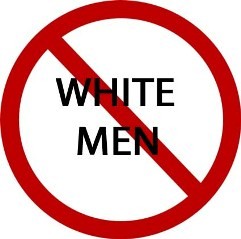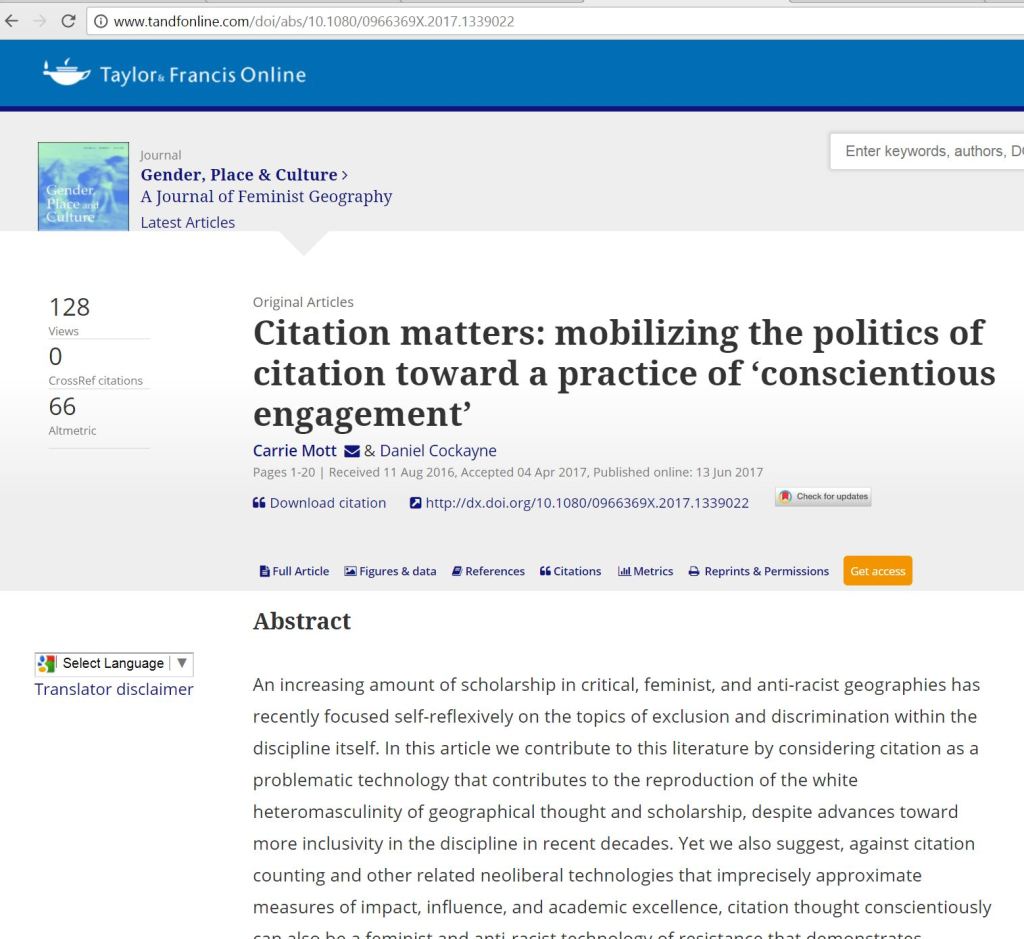According to this essay, published in Gender, Place & Culture: A Journal of Feminist Geography.
Ordinarily we cite to give credit for scholarly accomplishment and to aid other scholars in their research. But some things are more important than justice and knowledge!!


If you can think it, someone will publish it. Professional standards have gotten so low that academia is beginning to resemble the mainstream media. I guess citations are equal to ratings in this world?
In the unlikely event that I am ever called upon to write a paper about whiny, delusional academics who are unable to interface meaningfully with any narrative they cannot control (and who are hella mad about their burgeoning demographic irrelevance), I will certainly be sure to cite you multiple times. Your career spent railing against “postmodernism” would’ve been better dedicated to shouting at clouds.
“I guess citations are equal to ratings in this world?”
That has been explicitly the case since the establishment of the impact factor for academic journals. Ostensibly the IF relates to how rigorous the journal is (and therefore, presumably, the papers), but the reality is that it’s a popularity contest. It’s a real problem, particularly since students are encouraged to only focus on submissions to “high-IF” journals. Trouble is, to have a high IF you need to do one of two things: 1) be in medicine, or 2) be so generalized that your journal can’t delve into the details of anything. “Science” and “Nature” are good journals, but their broad audiences don’t attract the nuts-and-bolts research papers that comprise 99% of scientific investigation. In other words: The focus on high-IF journals for publishing one’s research is gutting the foundation of science.
Bear in mind, that’s the physical sciences. The humanities are in much, MUCH worse shape.